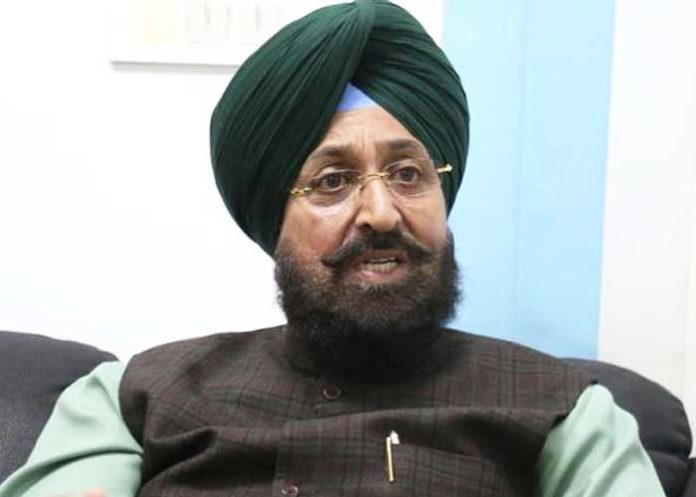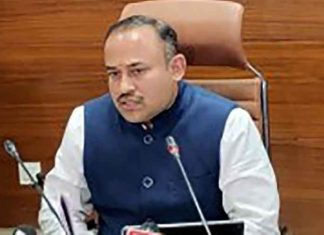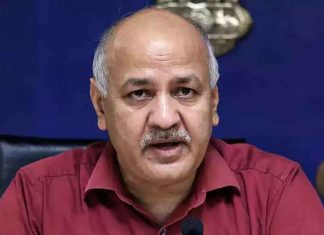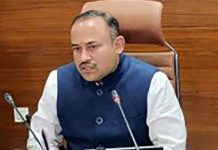New Delhi, Mar 19, 2020 (Yes Punjab News)
Partap Singh Bajwa, member of the Rajya Sabha will be moving a resolution in the House on Friday, seeking the Government to promote crop diversification and improve the agricultural sector via the open procurement system. He argues that nearly 70% of rural households in India depend on agriculture, as per the Economic Survey 2019-20.
The Economic Survey further points out that 82% of all farmers are small or marginal farmers. Small or marginal farmers are those who own less than 2 hectares of land as per the definition described by the Agricultural Census (2015-16). Moreover, the average size of an operational holding is about 1.08 hectares.
Given the size and importance of the agricultural sector for India’s food security, Partap Singh Bajwa, has sought the Chairman’s permission to move a resolution that seeks to increase the number of crops that are procured by the Government to include crops like maize, millets, pulses and oilseeds.
By increasing the crops that are procured by the Government, the MP is making the argument that this would promote crop diversification. By having an assured price and an assured market, farmers would now have the incentive to shift from producing solely rice or wheat, both of which are resource intensive crops.
He further points out in the resolution that the Shanta Kumar Committee review of the functioning of the Food Corporation of India, only 5.8% of farmers receive the Minimum Support Price for their produce. This low coverage along with rice/wheat being products that are procured, has led to a situation where farmers are disincentivized to diversify their produce.
The resolution further recommends the creation of a mechanism by which the Government can investigate individuals who are depriving farmers of their economic rights such as access to subsidies, reliable markets and the provision of the Minimum Support Price.
This is in-line with the private member’s bill he introduced to the House in July 2019, which envisions the creation of an investigative body that can better protect the farmers.
The resolution also urges the Government to create a robust National Mission on Edible Oils, which would promote further crop diversification. Lastly the resolution urges the Government to use the excess buffer stock that presently exists to combat malnutrition and hunger, given that India has slipped in the Global Hunger Index to the 102nd position out of 117 countries.
The text of the resolution as published on the List of Business for Friday, 20th March 2020 is as follows:
“Having regard to the fact that:-
(i) as per the Economic Survey in India 2019-20, nearly 70% of rural households in India, primarily depend on agriculture for their livelihood. Nearly 82% of farmers in India are small or marginal farmers;
(ii) as per the NABARD All India Rural Financial Inclusion Survey 2016-17 (NAFIS) the average monthly household income of the agricultural households in India is Rs. 8,931. The average incidence of indebtedness of an agricultural household was 52.5%, at an average debt of Rs. 1,04,602 per household. NAFIS also reports that 32.2% of all agricultural households are illiterate;
(iii) the Accidental Deaths & Suicides in India 2018 released by the Ministry of Home Affairs reported that 10,349 farmers committed suicide during 2018. A break down of the total farmers who committed suicide in 2018 is, 5,763 farmers/cultivators and 4,586 agricultural labourers;
(iv) as per the Agricultural Census 2015-16 (Phase-I), the average size of operational land holdings is about 1.08 hectares. The small ( 1.0 ha < 2.0 ha) and marginal ( below 0.5 ha to < 1.0 ha) taken together constituted 86.08% of total holdings in 2015-16, while the share of these farms in the operational area is 46.94% in 2015-16. A total of 146.45 million holdings were operational during the census period;
(v) the Agricultural Sector is predicted to grow at 2.8% during the year 2019-20 as per the Central Statistics Office. This is a sharp fall from the second revised estimate of 6.3% seen in 2016-17. As per the first revised estimate of 2017-18 the growth of the sector fell to 5.0%, which further fell to 2.9% as per the provisional estimates of 2018-19;
(vi) the Periodic Labour Force Survey reports that 8.5% of the rural population who are seeking employment were unemployed during the year 2017-18. The rise in unemployment amongst rural India is a cause for concern;
(vii) as per the Shanta Kumar committee review of the functioning of the Food Corporation of India that only 5.8% of agricultural households as per the 70th round of NSSO survey on the Key Indicators of Situation of Agricultural Households in India, receive MSP for their products;
this House urges upon the Government to:
a. ensure the open procurement system is not changed, but rather improved upon by supporting measures such as crop diversification and creating a robust procurement system for crops like maize, millets, pulses and oilseeds,
b. protect farmers from market volatility by ensuring an assured price and an assured market for their produce,
c. to create a mechanism by which the Government can investigate individuals who are depriving farmers of access to subsidies, access to reliable markets and provision of Minimum Support Price,
d. Increasing access and awareness of the procurement networks across the Country, ensuring that the present MSP has the intended effect of assuring a price and market for farmers,
e. reviewing and implementing a National Mission on Edible Oils to increase the productivity and production of oilseed crops, and assuring farmers who diversify an open market for their goods,
f. look at ways to use the present available excess procured stock above the buffer stock norms for combating malnutrition and hunger,
g. strengthen farmer producer organisations and creating commodity specific FPO’s that will ensure better access to markets for these organisations, thereby increasing the marketing power of farmers and help increase bargaining power to farmers,
h. promote consumption of fresh local products as a part of the National Health Mission, ensuring farmers have captive markets in their own State’s for their produce,
i. improving the warehousing facilities across the country as well as ensuring ease of doing business for farmers at local mandis, by ensuring that all required technological systems are in place to allow for faster movement of produce. “




































































